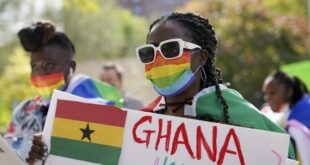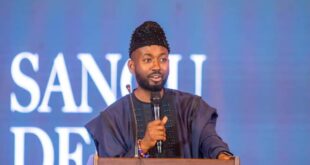Sagnarigu, Ghana – Private legal practitioner and broadcast journalist with the Multimedia Group, Samson Lardy Anyenini, has dispelled misconceptions amongst Ghanaians that the Right to Information (RTI) law was made for only journalists.
According to Mr. Anyenini, the RTI law (Act 989, 2019) was not made for only journalists or the media but for all Ghanaians.
He however noted that, though the law was made for all Ghanaians it would be utilized more by journalists.
“However, it is the media that would make the most use of it for and on behalf of the people”, the host of Newsfile on Joynews on MultiTV and lawyer at A – Partners at Law made the clarification at a forum on the newly passed RTI law for media practitioners at Sagnarigu in the Northern Region of Ghana on Wednesday.
The forum, organized by the Media Foundation for West Africa (MfWA) with support from Deutsche Welle Akademie, sought to clarify any misunderstanding amongst media practitioners with regards to the RTI Law.
A project Officer at MfWA, Fouzia Tua Alhassan who opened that one-day forum held at Modern City Hotel, also explained that the forum sought to update the media practitioners on the stage at which the government had reached with the implementation of the RTI law.
The forum brought together nearly 50 participants selected from the electronic, online and print media across the Northern Region.
As far back as 1999, Ghana’s Institute of Economic Affairs (IEA) drafted an RTI Bill for Ghana. It was reviewed three times (2003, 2005 and 2007) before it was presented in parliament for the first time in 2010.
In March 2018, the Right to Information Bill, 2018 (2018 Bill or Bill) was placed before Parliament. And it was passed into law in March this year.
The law will provide for the operationalisation of the constitutional right to information from public and some private institutions, subject to exemptions that are necessary and consistent with the protection of public interest in a democratic society.
It also seeks to foster a culture of transparency and accountability in public affairs and to provide for related matters.
Ghana’s media is the freest on the continent as at 2018 according to the press rights group, Reporters Without Borders.
By SavannahNewsOnline.Com/Philip Liebs
 Savannah News Online Reporting Only What Matters Most
Savannah News Online Reporting Only What Matters Most



